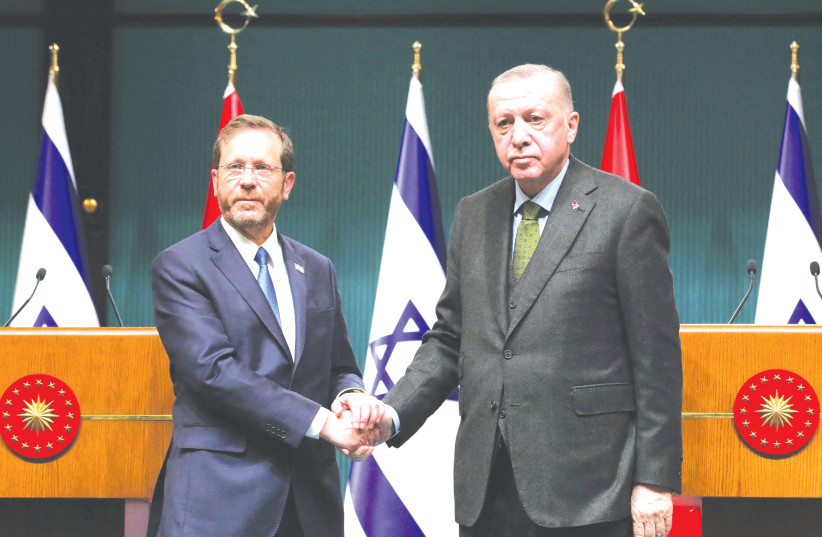The Economy and Industry Ministry plans to reopen the Israeli trade office in Istanbul, in a further sign of the rapprochement between Israel and Turkey.
Economy and Industry Minister Orna Barbivay said that “the economic attaché plays a central role in deepening and strengthening economic relationships with Turkey – an important economic partner for Israel – by providing assistance and support for Israeli imports, by identifying and creating commercial opportunities and by significantly contributing to expanding bilateral trade.”
Reopening the economic attaché’s office “reflects Israel’s commitment to deepening economic ties with Turkey,” Barbivay added.
"Reopening the economic attaché's office reflects Israel’s commitment to deepening economic ties with Turkey"
Economy and Industry Minister Orna Barbivay
In addition, the countries are working on their first joint economic conference since 2009, to take place in the fall.
Israel closed its economic office in Istanbul in 2019, the year after Turkey expelled the Israeli ambassador following American recognition of Jerusalem as Israel’s capital. Ties between Jerusalem and Ankara had deteriorated significantly over the previous decade, reaching their lowest point after the 2010 Mavi Marmara incident, in which IDF commandos boarded a ship seeking to break the blockade on Gaza. In the ensuing hand-to-hand combat, the commandos killed nine armed activists from an organization affiliated with Turkish President Recep Tayyip Erdogan.

Israel and Turkey's rapprochement
However, in recent years, Turkey sought to rebuild relations with Israel, and the efforts gained momentum after President Isaac Herzog took office and held a series of phone calls with Erdogan. Herzog visited Ankara earlier this year, and Foreign Minister Yair Lapid and his Turkish counterpart Mevlüt Çavusoglu exchanged visits to Ankara and Jerusalem, discussing the reinstatement of ambassadors.
In addition, cooperation between Turkey and Israel to fight an Iranian terrorist threat against Israeli tourists in Istanbul, which resulted in the evacuation of several Israelis and the arrest of Iran-backed terrorists, brought the countries closer together.
The Economy and Industry Ministry said that “the Turkish economy combines advanced industry alongside agriculture based on traditional farming methods.”
Turkey is the 19th-largest economy in the world, with many multinational companies operating there.
Israel and Turkey's trade relations
Some 1,540 Israeli companies export to Turkey, making it Israel’s fourth-largest trading partner, with trade standing at $7.7 billion in 2021, and fifth-largest export destination in 2021, with the volume of exports reaching $1.9 bn. The countries have had a free trade agreement since 1997.
About half (52%) of Israeli exports to Turkey are chemicals. Israel also exports base metals, rubber and plastic to Turkey, and imports base metals, electrical and mechanical machinery, transport products and fresh agricultural produce.
“Current exports to Turkey are centralized and there is great potential for their expansion,” Foreign Trade Association Director Ohad Cohen said. “The two countries have a free trade agreement that facilitates significant access for exporters to the market. The reopening of the economic attaché for joint activity will help realize the potential inherent in cooperation, for the benefit of both countries.”
